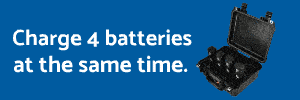As my Pro4+ gets closer to arriving I would need some help, probably with many issues, to improve my chances of an uneventful flight.
The DJI manual says not to calibrate unless the app tells you to do so. Ive read the forums and some say they never calibrate and others calibrate before most flights especially when they have traveled to a new location some distance from the old one. Never have I observed anyone talking about re-calibrating when the DJI app says to do so.
What's the correct technical answer please?
The DJI manual says not to calibrate unless the app tells you to do so. Ive read the forums and some say they never calibrate and others calibrate before most flights especially when they have traveled to a new location some distance from the old one. Never have I observed anyone talking about re-calibrating when the DJI app says to do so.
What's the correct technical answer please?









